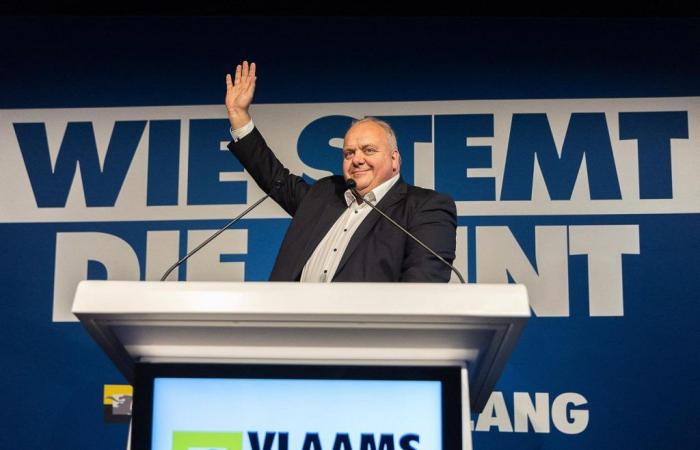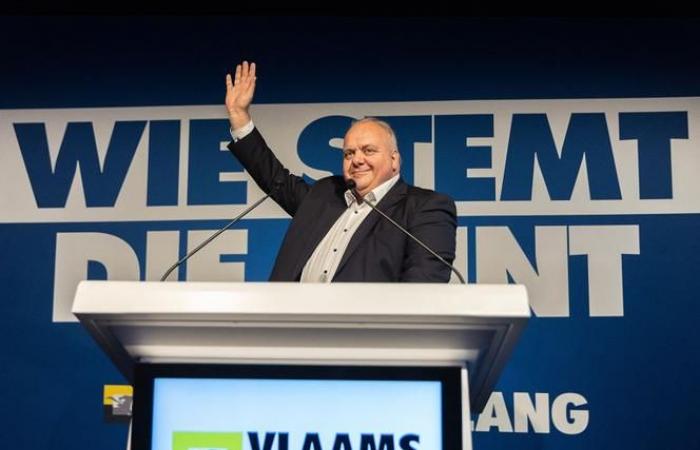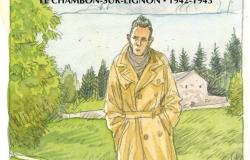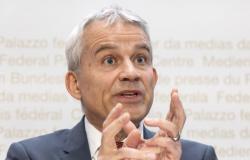In 2018, they came within a hair of victory and, today, they are redoing their calculations: with just under 1,000 votes gleaned from their opponents, they would achieve their goals. Supporters of Guy d’Haeseleer, MP for the xenophobic and separatist far-right party Vlaams Belang (VB), dream of a victory in Ninove, a town of 40,000 inhabitants, in the province of East Flanders. On the evening of the municipal elections on Sunday October 13, they intend to see their favorite become “bourgmestre” (mayor). This would be a first since 1945 in the country and it would symbolically mark the end of the sanitary cordon, this practice which, since the creation of Vlaams Belang – which was then called Vlaams Blok – in 1979, has made it possible to keep this party at bay. gap at all levels of power.
“You shouldn’t write that we’re Nazis. We just find that there are too many foreigners living here now and taking social housing. Guy is a nice guy who understands that and helps us,” comments Jos, a retiree (who did not wish to give his name) as he leaves the De Posthoorn café, renamed “Vlaams Huis” – Flemish House –, a bistro in Ninove decorated with nationalist flags, lions with all their claws out and VB posters.
In 2018, Guy d’Haeseleer preferred the VB label to that of “Forza Ninove”, likely to bring him the votes of a more moderate electorate. A successful bet: he won fifteen seats out of the thirty-three on the municipal council. Facing him, the liberal mayor Tania De Jonge brought together the socialist, ecological and Christian democratic parties to secure a narrow majority, supported by an independent candidate who became the scapegoat of the Vlaams Huis. During the regional elections on June 9, Mr. D’Haeseleer obtained 39.2% of the votes in his city. Jos and his friends are convinced that it will do even better on Sunday, when the population will be called upon to decide on purely local issues.
Fight against “francization”
In Ninove, located 40 km from Brussels, unemployment and delinquency rates are below the average for the Flemish region. The town hall prides itself on having increased the police force and having invested massively in surveillance cameras, while the hard core of a gang of young thugs has apparently been dismantled. “The problem, for a good number of residents, is the “visible” nature of immigration,” explains a town hall employee, who requested anonymity “given the political context”.
Read also | Article reserved for our subscribers In Belgium, the popularity of the far-right Vlaams Belang party raises fears of a “Black Sunday” during the federal legislative elections
Add to your selections
Visible ? “In around twenty years, many Africans have left Brussels and Ghent, which had become too expensive, to come and settle here,” explains our interlocutor. Translation by Jos and his wife, who joined him: “They haven’t done anything to us but they don’t participate in anything, drain 80% of social assistance and, what’s more, they only speak French. » The fight against the “Francization” of the region, following the arrival of foreigners who now represent a fifth of the local population, is another theme of the campaign. If they come to the town hall, those who do not know Dutch are already invited to be accompanied by an interpreter. Or to rely on the goodwill of a disobedient official.
You have 38.69% of this article left to read. The rest is reserved for subscribers.







